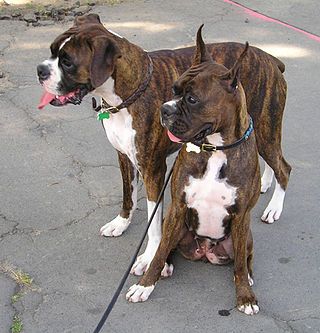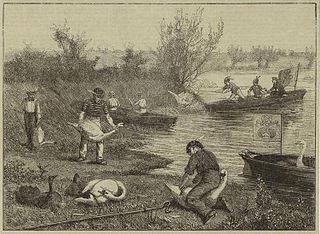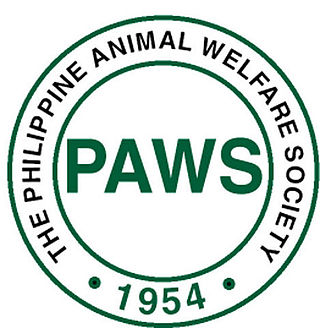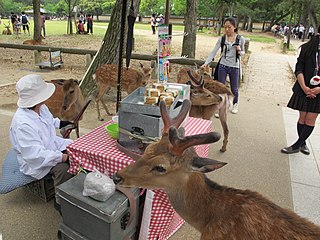| The Paw Project | |
|---|---|
| Directed by | Jennifer Conrad |
| Written by | Jennifer Conrad |
| Produced by |
|
| Starring |
|
| Edited by | Allan Holzman |
| Music by | Bobby Tahouri |
Release date |
|
Running time | 58 minutes |
| Country | United States |
| Language | English |
The Paw Project is a 2013 documentary film that focuses on the declawing of both exotic and domesticated cats in the United States. The film follows the crusade of veterinarian Dr. Jennifer Conrad, who campaigns to have declawing bans enacted in a number of cities. The Paw Project is also the name of the nonprofit organization founded by Conrad over the course of the film.
Dr. Jennifer Conrad is a veterinarian who treats animals in Hollywood. She focuses on large exotic cats that are used in films or shows or live in animal sanctuaries. One of her patients is the fully declawed tiger who appears in the 2009 film The Hangover . Conrad finds that the cats she is working with are suffering greatly because of elective onychectomy surgeries, commonly known as declawing, that are being performed on them. Often these surgeries are undertaken with the intent on making the animal safer to work with, but, ironically, make the animals more irritable and can change their behavior.
Conrad pays for eight large exotic cats with her own money to undergo surgery to help repair their declawing operations that have left them unable to walk without pain. She realizes that the scope of declawing is much more than she can handle alone, and eventually sets up a 501 (c)(3) charity called the Paw Project to help fund surgeries for these large cats. Conrad then goes on to focus on domestic cats in the film as well, citing that up to 22 million cats are currently declawed in the United States alone.
The Paw Project follows Conrad through attempts in California to ban declawing procedures. In 2003, the city of West Hollywood became the first city in the United States to ban declawing. Conrad worked closely with Mayor John Duran to help this pass against opposition from many veterinary associations. Eventually, legislation is passed in seven more Californian cities, including Los Angeles, San Francisco, Burbank, Santa Monica, Berkeley, Beverly Hills and Culver City. The film includes a listing of the countries in where declawing is illegal, including Australia, Brazil, the Netherlands, Germany, Austria, Switzerland, the United Kingdom and others.
The main message of the film is to raise awareness and for the United States to make declawing illegal. Since the filming of The Paw Project, the United States Department of Agriculture had enacted a ban on the declawing and defanging of wild and exotic carnivores. [1] The Paw Project organization and Conrad are continuing work for legislation that would make declawing illegal for domestic cats as well. In 2012, the Paw Project sponsored legislation that prohibits landlords from requiring declawing or devocalization of pets as a condition of tenancy. [2]
The Paw Project has overall received positive reviews from its reviewers. It has been called "an inspiring David and Goliath story of a grassroots movement" [3] and "A beautiful film. A powerful revolution." [4]
Deep Roots magazine said "this is a movie that was fashioned with great care, skill and passion, a flick that bespeaks such precision and wise gambits that it seems too glib, maybe even too inaccurate, to use the word 'flick'." [5] Deep Roots was followed by Animals Today Radio, who issued the statement about The Paw Project: "The film is a moving and inspiring account of the cruelty of feline declawing and the efforts to ban it." [6]
The Portland Book Review said "Everyone needs to see this stunning documentary. The images will break your heart, while at the same time reminding you how beautiful these creatures truly are. This documentary will motivate you to speak up for all animals who can't speak for themselves." [7]
Actor Kellan Lutz endorsed the movie in September 2013, posting on Twitter: "Hey team, take a moment and check out @PawProject. This inspiring story aims to increase awareness of the cruelty of declawing." [8] The Paw Project was also endorsed by television personality and animal advocate Wendy Diamond [9] as well as internet celebrity Randall of The Crazy Nastyass Honey Badger viral video. [10]

A veterinarian (vet) is a medical professional who practices veterinary medicine. They manage a wide range of health conditions and injuries in non-human animals. Along with this, veterinarians also play a role in animal reproduction, health management, conservation, husbandry and breeding and preventive medicine like nutrition, vaccination and parasitic control as well as biosecurity and zoonotic disease surveillance and prevention.

Docking is the removal of portions of an animal's tail. While docking and bobbing are more commonly used to refer to removal of the tail, the term cropping is used in reference to the ears. Tail docking occurs in one of two ways. The first involves constricting the blood supply to the tail with a rubber ligature for a few days until the tail falls off. The second involves the severance of the tail with surgical scissors or a scalpel. The length to which tails are docked varies by breed, and is often specified in the breed standard.

Cruelty to animals, also called animal abuse, animal neglect or animal cruelty, is the infliction of suffering or harm by humans upon animals, either by omission (neglect) or by commission. More narrowly, it can be the causing of harm or suffering for specific achievements, such as killing animals for entertainment; cruelty to animals sometimes encompasses inflicting harm or suffering as an end in itself, referred to as zoosadism. Divergent approaches to laws concerning animal cruelty occur in different jurisdictions throughout the world. For example, some laws govern methods of killing animals for food, clothing, or other products, and other laws concern the keeping of animals for entertainment, education, research, or pets. There are several conceptual approaches to the issue of cruelty to animals.

Onychectomy, popularly known as declawing, is an operation to remove an animal's claws surgically by means of the amputation of all or part of the distal phalanges, or end bones, of the animal's toes. Because the claw develops from germinal tissue within the third phalanx, amputation of the bone is necessary to fully remove the claw. The terms onychectomy and declawing imply mere claw removal, but a more appropriate description would be phalangectomy, excision of toe bone.
A crush fetish is a fetish and a paraphilia in which sexual arousal is associated with observing objects being crushed or being crushed oneself. The crushed objects vary from inanimate items, to injurious and/or fatal crushing of invertebrates, or vertebrates.
Devocalization is a surgical procedure where tissue is removed from the vocal cords.

The Animal Protection and Rescue League (APRL) is an American grassroots animal rights organization, founded in 2003, based in California's San Diego and Orange Counties.

Pinioning is the act of surgically removing one pinion joint, the joint of a bird's wing farthest from the body, to prevent flight. Pinioning is often done to waterfowl and poultry. It is not typically done to companion bird species such as parrots. This practice is unnecessary and restricted in many countries.

Veterinary surgery is surgery performed on non-human animals by veterinarians, whereby the procedures fall into three broad categories: orthopaedics, soft tissue surgery, and neurosurgery. Advanced surgical procedures such as joint replacement, fracture repair, stabilization of cranial cruciate ligament deficiency, oncologic (cancer) surgery, herniated disc treatment, complicated gastrointestinal or urogenital procedures, kidney transplant, skin grafts, complicated wound management, and minimally invasive procedures are performed by veterinary surgeons. Most general practice veterinarians perform routine surgeries such as neuters and minor mass excisions; some also perform additional procedures.

The Philippine Animal Welfare Society (PAWS) is a volunteer-based, non-government organization whose goal is to prevent animal cruelty through education, animal sheltering and advocacy, based in Quezon City, Philippines. It was founded in 1954 by Muriel Jay. PAWS believes that the creation of a more peaceful society starts with the widening of mankind's circle of compassion which includes animals, thereby envisions a nation that respects animals, practices responsible pet ownership and protects wildlife. The volunteer-based organization rehabilitates these animals in the hope of finding them new homes and a second chance at a good life. PAWS does not take in pets of other people, but only victims of cruelty or neglect where the animal offenders are charged with violation of the Animal Welfare Act in court.

The Massachusetts Society for the Prevention of Cruelty to Animals-Angell Animal Medical Center (MSPCA-Angell) is a 501(c)(3) non-profit organization with its main headquarters on South Huntington Avenue in the Jamaica Plain neighborhood of Boston, Massachusetts. It was founded in 1868, and is the second-oldest humane society in the United States. "MSPCA-Angell" was adopted as the society's identity in 2003, and indicates the names of its two closely related predecessor organizations: Massachusetts Society for the Prevention of Cruelty to Animals and Angell Animal Medical Center. The organization provides direct care to thousands of homeless, injured, and abused animals each year, and provides animal adoption, a veterinary hospital, advocacy, and humane law enforcement.
Venomoid surgery is a surgical procedure performed on venomous snakes to prevent them from producing venom. The procedure has been used for snakes kept as pets or used in public demonstrations in order to remove the risk of injury or death when handled, but is considered illegal and unethical. Most venomoid procedures consist of either removing the venom gland itself, or severing the duct between the gland and the fang. Removal of fangs is uncommon, as snakes frequently regenerate teeth, and the more invasive procedure of removing the underlying maxillary bone would be fatal. However, the duct and gland have been known to regenerate, and supposedly "safe" snakes have killed mice and successfully envenomated humans.
The National Animal Interest Alliance (NAIA) is a non-profit organization in the United States dedicated to promoting animal welfare and animal husbandry practices, strengthening the human-animal bond, and safeguarding the rights of responsible animal owners and professionals through research, public education and public policy. The NAIA mission is "to promote the welfare of animals."

An exotic pet is a pet which is relatively rare or unusual to keep, or is generally thought of as a wild species rather than as a domesticated pet. The definition varies by culture, location, and over time—as animals become firmly enough established in the world of animal fancy, they may no longer be considered exotic.

Cropping is the removal of part or all of the external flaps of an animal's ear. The procedure sometimes involves bracing and taping the remainder of the ears to train them to point upright. Almost exclusively performed on dogs, it is an old practice that was once done for perceived health, practical or cosmetic reasons. Veterinary science states there is no medical or physical advantage to the animal from the procedure, leading to concerns of animal cruelty over performing unnecessary surgery on animals. In modern times, cropping is banned in many nations, but is still legal in a limited number of countries. Where permitted, it is seen only in certain breeds of dog, such as pit bull and bull terrier type breeds, the Doberman Pinscher, Schnauzer, Great Dane, Boxer and Cane Corso.

Human interaction with cats relates to the hundreds of millions of cats that are kept as pets around the world. The inter-relationship involves companionship, communication and caregiving. Dating back thousands of years, cats were originally domesticated for their ability to control pests and later became valued companions. Cats communicate through vocalizations, body language and behaviors, forming strong bonds with their human owners. Owners provide the food, shelter, and medical care, while play and enrichment activities stimulate their physical and mental well-being. Despite their independent nature, cats enjoy human company and require understanding of their unique behaviours. Positive reinforcement training can shape desired behaviours, fostering a harmonious relationship between humans and their feline companions, built on mutual respect and affection.
The Vancouver Orphan Kitten Rescue Association (VOKRA) is a no kill, non-profit cat rescue organization in Vancouver, British Columbia, Canada, providing trap–neuter–return services to Vancouver and nearby communities.

Japan has implemented several national animal welfare laws since 1973, but these protections are considered weak by international standards. Animal activism and protection laws in Japan primarily focus on the welfare of domesticated animals and farm animals.
Animal welfare and rights in Mexico regards the treatment of and laws concerning non-human animals in Mexico.

Four Paws is a global animal welfare organisation based in Vienna, Austria. It focuses on improving the living conditions of animals under direct human influence, by revealing suffering, rescuing animals in need, and protecting them.